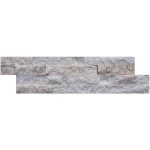Introduction:
Basalt, a natural igneous rock formed from volcanic activity, has been used for centuries in construction and various industrial applications. However, recent advancements in technology and innovative thinking have led to the development of cultured basalt, a material that not only retains the inherent qualities of its natural counterpart but also offers numerous advantages in terms of sustainability, durability, and versatility. This article explores the concept of cultured basalt, its production process, and the wide range of applications it holds in various industries.
1. Understanding Basalt:
Basalt is a type of igneous rock that is primarily composed of plagioclase, pyroxene, and olivine minerals. It is formed when lava cools rapidly on the Earth's surface or in shallow sub-surface environments. Basalt is known for its high compressive strength, excellent thermal properties, and resistance to chemical weathering. These qualities make it a highly desirable material for construction, road building, and infrastructure development.
2. Cultured Basalt: Definition and Production Process:
Cultured basalt, also known as cast basalt, is a synthetic material that replicates the composition and properties of natural basalt. It is produced by melting crushed basalt rock at high temperatures and then casting it into various shapes and forms. The production process involves carefully controlled cooling and annealing to achieve the desired properties. The result is a material that closely resembles natural basalt but offers additional benefits.
3. Advantages of Cultured Basalt:
3.1 Sustainability:
One of the primary advantages of cultured basalt is its sustainability. Traditional construction materials, such as concrete and steel, contribute significantly to carbon emissions and environmental degradation. Cultured basalt, on the other hand, has a minimal ecological footprint as it is derived from abundant and naturally occurring basalt deposits. Its production process requires less energy compared to other synthetic materials, making it a greener alternative for various applications.
3.2 Durability and Strength:

Cultured basalt inherits the exceptional durability and strength of natural basalt. Its high compressive strength makes it suitable for heavy-duty applications, such as industrial flooring, wear-resistant linings, and erosion control. Cultured basalt is also resistant to chemical corrosion, making it ideal for environments with harsh chemical exposure.
3.3 Thermal Insulation:
Basalt, whether natural or cultured, has excellent thermal insulation properties. Cultured basalt products can effectively resist heat transfer, making them suitable for applications requiring insulation, such as refractory linings, thermal barriers, and fire protection systems. Its low thermal conductivity can significantly reduce energy consumption and enhance energy efficiency in buildings and industrial processes.
3.4 Wear Resistance:
Cultured basalt exhibits exceptional wear resistance, making it an ideal material for applications subject to abrasion and impact. This property makes it suitable for manufacturing pipes, valves, chutes, and other components in industries such as mining, cement, and power generation. The wear resistance of cultured basalt ensures longevity and reduces maintenance costs.
3.5 Sound Dampening:
The porous nature of cultured basalt allows it to absorb sound and reduce noise pollution. This property makes it an attractive choice for architectural applications, such as soundproofing panels, acoustic ceilings, and interior finishes in buildings, concert halls, and theaters. The natural aesthetics of basalt also contribute to the overall ambiance and visual appeal of such spaces.
4. Applications of Cultured Basalt:
4.1 Construction Industry:
Cultured basalt finds extensive applications in the construction industry. It can be used for manufacturing structural components, such as beams, columns, and panels, due to its high strength and load-bearing capacity. Additionally, its thermal insulation properties make it suitable for insulation boards, roofing materials, and façade cladding. Cultured basalt can also be used as an alternative to traditional flooring materials in high-traffic areas, thanks to its wear resistance and durability.
4.2 Infrastructure Development:
The durability and chemical resistance of cultured basalt make it an excellent choice for infrastructure development. It can be used for manufacturing pipes, culverts, and drainage systems that are subject to corrosive environments. Its high compressive strength also makes it suitable for bridge construction, road pavement, and retaining walls. The thermal insulation properties of cultured basalt can enhance the energy efficiency of buildings and contribute to sustainable infrastructure development.
4.3 Manufacturing and Industrial Applications:
Cultured basalt's exceptional wear resistance and thermal properties make it an ideal material for various manufacturing and industrial applications. It can be used for manufacturing wear-resistant linings, furnace linings, and kiln furniture in industries such as steel, cement, and glass. Its resistance to chemical corrosion also makes it suitable for manufacturing chemical storage tanks, acid-resistant flooring, and lining systems.
4.4 Environmental Applications:
Cultured basalt has potential applications in environmental protection and restoration. Roofing Slate can be used for erosion control in riverbanks, shorelines, and coastal areas due to its ability to withstand harsh weather conditions and water erosion. Additionally, its sound-absorbing properties can contribute to noise reduction in urban areas, improving the quality of life for residents.
Conclusion:
Cultured basalt represents a significant advancement in the field of construction materials. Its production process harnesses the natural properties of basalt while offering additional advantages in terms of sustainability, durability, and versatility. With its wide range of applications in the construction, infrastructure, manufacturing, and environmental sectors, cultured basalt has the potential to revolutionize various industries while contributing to a more sustainable and greener future. Embracing this innovative material can lead us towards a path of responsible resource utilization and reduced environmental impact.
